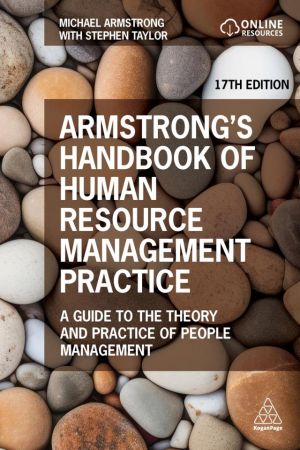We are now closed for the Christmas and New Year period, returning on Monday 5th January 2026. Orders placed during this time will be processed upon our return on 5th January.

Armstrong's Handbook of Human Resource Management Practice is the definitive resource for HRM students and professionals, to understand and implement all things HR.
This book is suited to both professionals and students of undergraduate and postgraduate degrees, providing detailed coverage of all areas essential to the HR function such as employment law, employee relations, learning and development, performance management and reward management.
It also covers the HR skills needed to ensure professional success and development, including leadership, managing conflict, interviewing and using statistics. Illustrated in colour throughout, readers will find a range of pedagogical features to consolidate learning such as source review boxes, key learning points and real world examples from international organizations such as IBM, HSBC and Johnson and Johnson.
This fully updated 17th edition includes new material on:
Updates are included throughout to reflect the changes within the realm of HR, such as talent management, hybrid working and employee wellbeing. It is aligned with the Chartered Institute of Personnel and Development (CIPD) profession map so can be used by those studying Level 5 and Level 7 qualifications. Online supporting resources include comprehensive handbooks for lecturers and students, lecture slides, toolkits, and a literature review, glossary and bibliography.